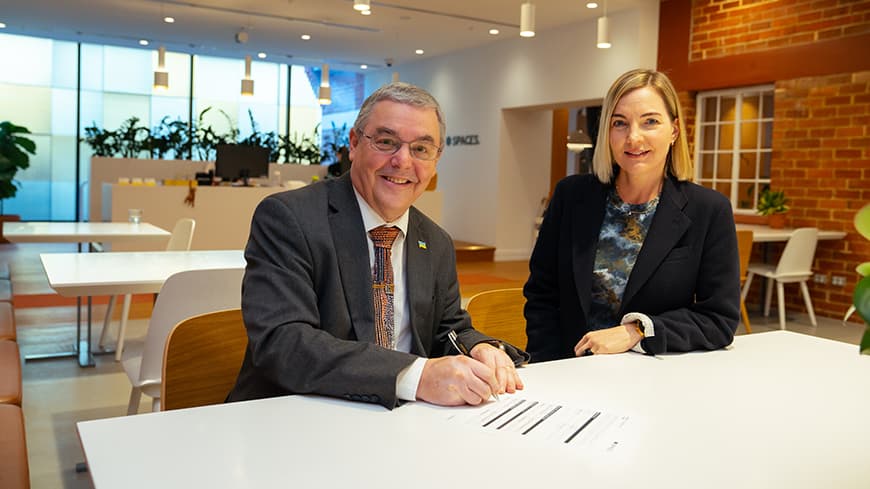Universities can't guarantee their students will emerge freshly graduated into a dream job.
It does happen, but it's not something anyone realistically expects.
Having said that, universities do take seriously their role in preparing students for life after graduation.
This is done in a number of ways.
Running programs to help them develop their 'personal brand' is one example.
Opportunities for practical training with industry-grade technology is another.
And practicum placements with industry partners is yet another way to bridge the gap between theory and the real world.
But one university recently took this last option a little further.
Applying some creative thinking, they teamed up with a global industry partner to create a win-win-win outcome.
And no, that's not a typo.
The strategy, involving partners IBM and Edith Cowan University involves:
- selecting students who are learning current or emerging skills that will power WA's future economy
- providing those students some work experience with real clients on real projects
- increasing students' employability skills and industry insights
- paying those students during their studies as part of an internship
- offering successful students a job after they graduate.
Lots of winners all 'round!
We think we've started something
The IBM-ECU collaboration has been a success.
And it's a model that could be expanded to other industry partners.
It could also expand to students taking courses in other in-demand disciplines.
Understandably, ECU's Vice-chancellor Professor Steve Chapman is excited.
"When we talk of the jobs of the future, the future of education and student readiness – this is a breakthrough model that dramatically increases employability," he says.
 ECU's Vice-Chancellor Professor Steve Chapman with IBM Design Director Vivien Hegedus.
ECU's Vice-Chancellor Professor Steve Chapman with IBM Design Director Vivien Hegedus.
Creative thinking is the new superpower
IBM Design Director Vivien Hegedus agrees.
Vivien adds that, "Today's digital transformation across industries is creating jobs that require new skills and innovative thinking."
ECU has recognised this demand for graduates who can think on their feet and can innovate – either as an employee or as an entrepreneur.
This has evolved into a new direction for the university who are proudly proclaiming through their new brand campaign that 'Creative thinkers are made here.'
Indeed, global companies are now reporting* that complex problem-solving, analytical thinking and innovation, plus creativity and originality are their most in-demand skills.
Little wonder that ECU regards creative thinking as a superpower.
Better still, they've used some of their own out-of-the-box thinking to solve an age-old graduate dilemma.
*Source: World Economic Forum / The Future of Jobs Report

 Students celebrating in the traditional manner at a university graduation ceremony
Students celebrating in the traditional manner at a university graduation ceremony


